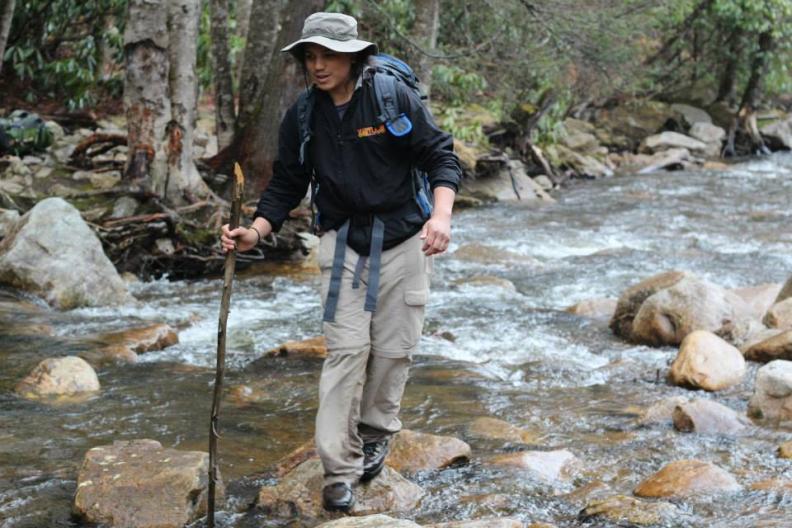
Michael Lagua ‘13 always wanted to work for a mission-driven organization, which is why he felt drawn to the National Fish and Wildlife Foundation.
“I really like how nonprofits are mission driven organizations,” he says. “It was mostly about finding a place that aligned with my ethics. Just being around that work environment is really cool.”
Lagua first became interested in wildlife conservation when studying at the University of Maryland. Through the Environmental Science and Policy department, he learned about the wildlife ecology and management concentration. From there, his interest grew from his classes and internships, like working at an aquarium.
First introduced to fisheries at UMD, Lagua further pursued this field at the University of Florida through its fisheries and aquatic sciences masters program.
“One of the reasons fisheries was so important to me was because of the ecosystem and connections with fish and wildlife. All those ecosystems have an interconnectedness. I already knew about the wildlife part, so I wanted to learn more about the fisheries side.”
Today, Lagua manages the foundation’s fisheries conservation program. The program works to build fishing community capacity, support the implementation of sustainable use practices and help integrate technology into the fisheries data collection. Lagua works with the foundation’s partners and grantees, who put forward the best available projects that contribute to the priorities of the fund.
“My favorite part of my job is having an impact on fisheries conservation and being able to use what I’ve learned through my education both at Maryland and University of Florida in a real way and apply some of that educational background to real world scenarios,” Lagua says.
Part of Lagua’s job is to research different strategies for fisheries conservation. He said that having a background and understanding of the ecology, biology, and fisheries sciences helps him to effectively build conservation strategies for the program.
Lagua thinks that people are just as connected to the environment as fisheries are. “It’s important to be aware of and to understand human’s role and that humans can have an effect on sustainability. Just thinking about how we can sustainably live among ecosystems, in terms of renewable resources and nonrenewable resources, is crucial to our environment.”
Learn more about the National Fish and Wildlife Foundation.
By Sanchali Singh, Communications & Writing Intern, Office of Sustainability